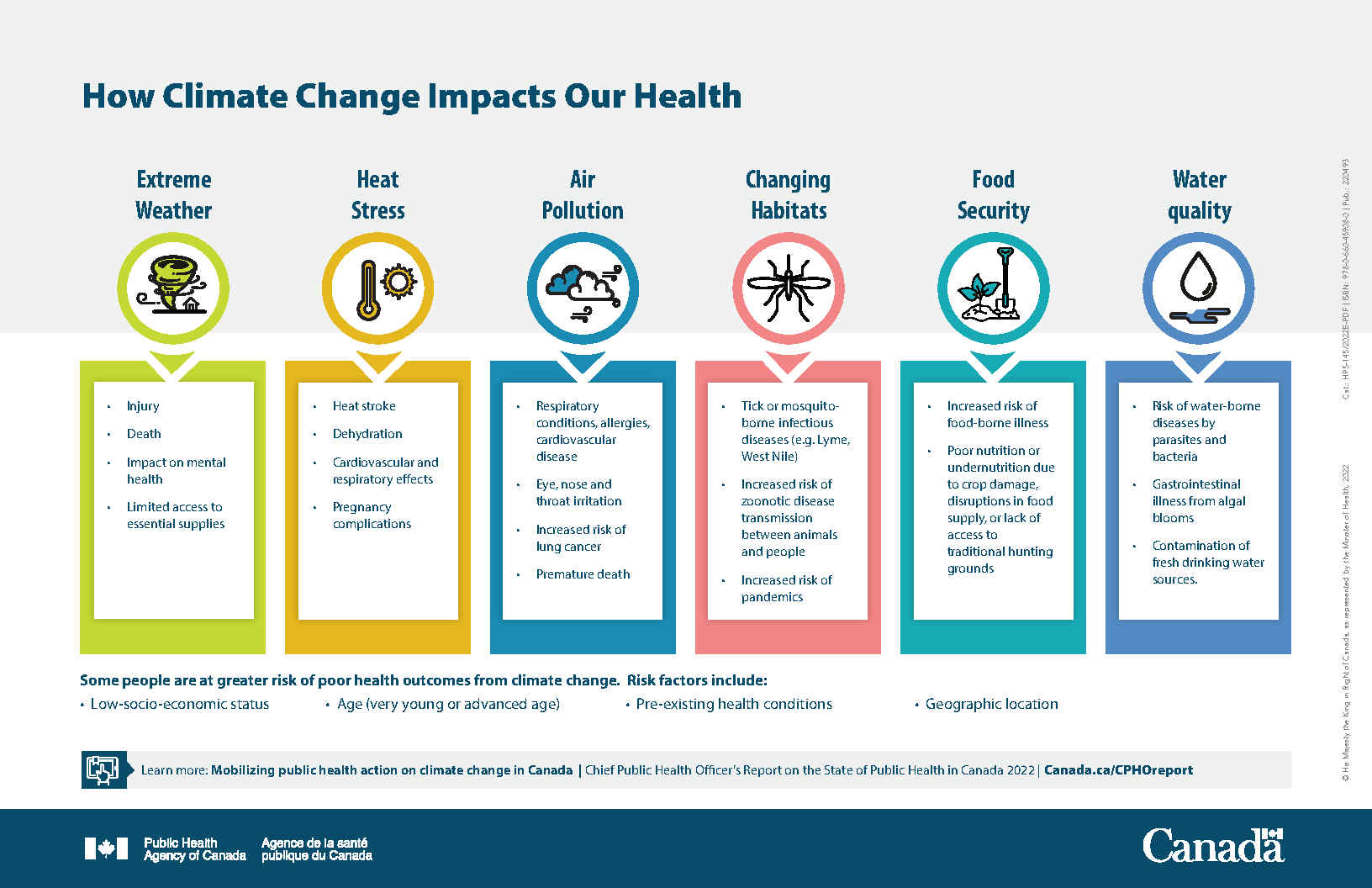Infographic: How climate change impacts our health
Download in PDF format
(186 KB, 1 pages)
Organization: Public Health Agency of Canada
Date published: 2022-10-25
Related topics
For the Chief Public Health Officer of Canada's Report on the State of Public Health in Canada 2022: Mobilizing Public Health Action on Climate Change in Canada
Extreme weather
- Injury
- Death
- Impact on mental health
- Limited access to essential supplies
Heat stress
- Heat stroke
- Dehydration
- Cardiovascular and respiratory effects
- Pregnancy complications
Air pollution
- Respiratory conditions, allergies, cardiovascular disease
- Eye, nose and throat irritation
- Increased risk of lung cancer
- Premature death
Changing habitats
- Tick or mosquito-borne infectious diseases (e.g. Lyme, West Nile)
- Increased risk of zoonotic disease transmission between animals and people
- Increased risk of pandemics
Food security
- Increased risk of food-borne illness
- Poor nutrition or undernutrition due to crop damage, disruptions in food supply, or lack of access to traditional hunting grounds
Water quality
- Risk of water-borne diseases by parasites and bacteria
- Gastrointestinal illness from algal blooms
- Contamination of fresh drinking water sources due to factors such as storm water, flooding, and thawing permafrost
Some people are at greater risk of poor health outcomes from climate change. Risk factors include:
- Low-socio-economic status
- Age (very young or advanced age)
- Pre-existing health conditions
- Geographic location
Learn more:
Mobilizing public health action on climate change in Canada
Chief Public Health Officer's Report on the State of Public Health in Canada 2022
Canada.ca/CPHOreport
